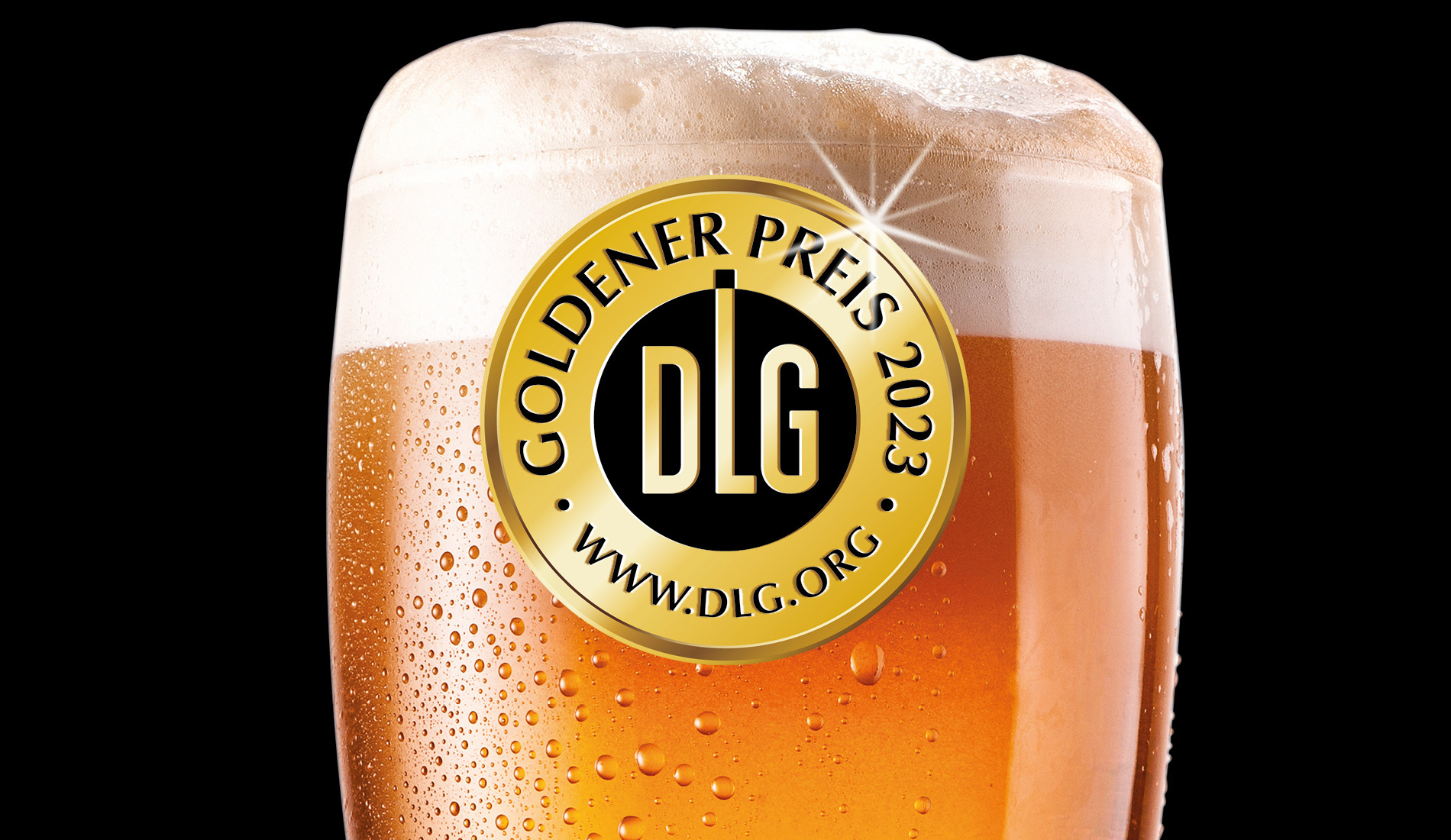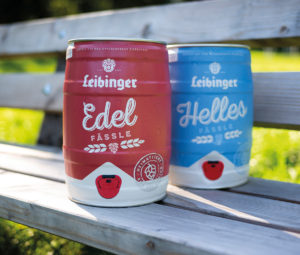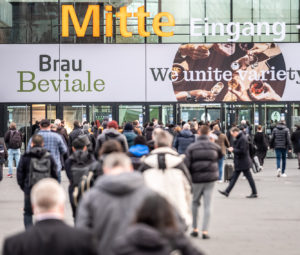1. What is the DLG quality test for beer?
The DLG quality test for beer is one of the most scientifically demanding and objective quality tests in the world. It comprises strict test criteria, laboratory analyses and the verdict of a jury of experts, which includes testers trained in sensory analysis. Within three months, the DLG comprehensively tests the quality of the beers submitted. All this takes place in close cooperation with the two leading brewing institutes, the ” Experimental and Teaching Institute for Brewing in Berlin (VLB) e.V.” and the Weihenstephan Research Center for Brewing and Food Quality.
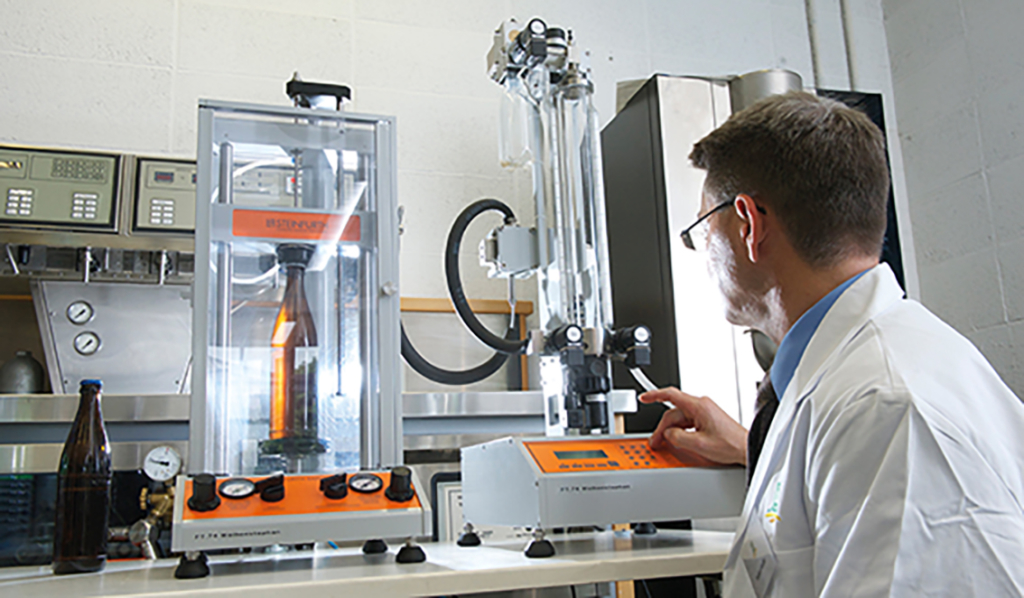
Beer testing in the laboratory
2. What are the awards?
- DLG medals in gold, silver and bronze: Awards are given to beers and beer-mixed beverages that pass the demanding expert tests.
- DLG Classics: The “DLG Classics” include products that have successfully participated in the DLG quality test for at least five years in succession.
- New “Best Beer” award: In 2023, for the first time, the highest-rated beers in the relevant categories will be highlighted with this special award (e.g. Best Pilsner, Best Export, Best Bock Beer). For the first time, the “best non-alcoholic beer” will also be awarded in various categories.
- “Brewery of the Year”: The Federal Gold Award is presented to the brewery with the best overall result in the DLG quality test. The prize, which is awarded by the German Federal Ministry of Food and Agriculture (BMEL), is the highest company award in the German brewing industry.
- “TOP 12 Brewery of the Year”: This award goes to breweries that receive the Federal Honor Award in silver and gold.
- Longstanding Product Quality Award: This special award goes to breweries whose beers (at least 3 products) have won awards for five years in a row.
DLG quality test for beer: laboratory analysis and blind tasting
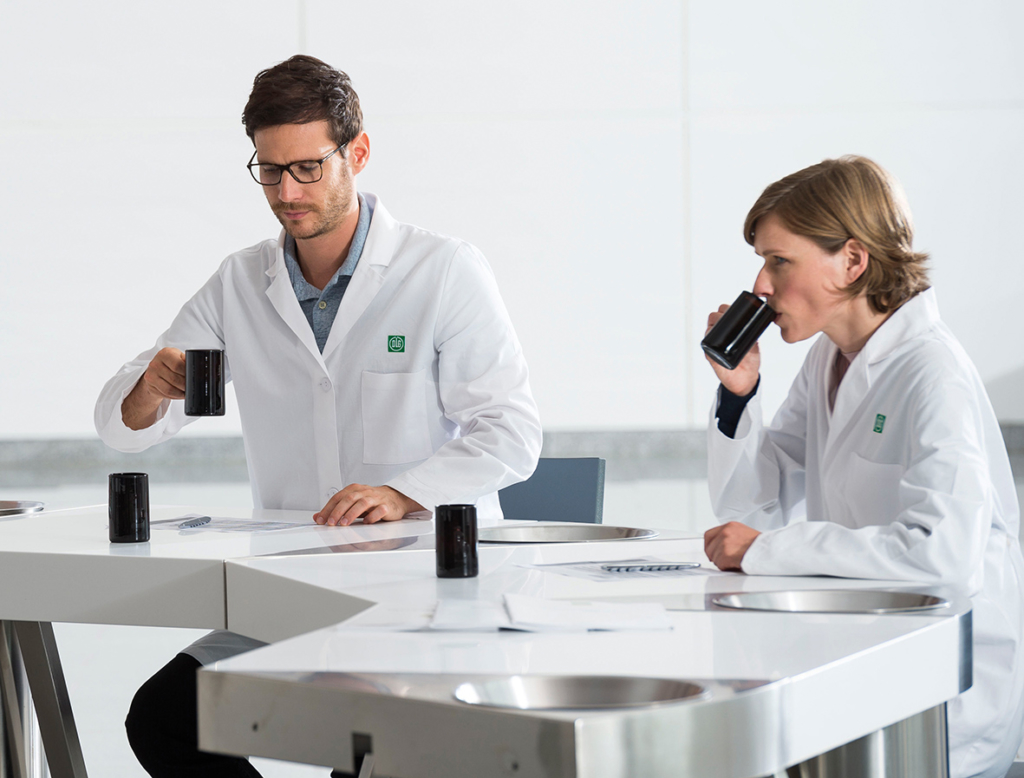
Two testers during sensory beer testing
3. How does the exam work?
By means of laboratory analysis, the experts check, among other things, the parameters of alcohol content, flavor stability, shelf life, original wort, microbiology, foam stability, as well as color and degree of turbidity. In addition, a declaration check is carried out. In sensory blind tastings, the experts assess whether the final product is typical of the beer type in terms of its aroma and taste characteristics. The DLG quality test for beer focuses on the varietal taste and purity of the beers as well as the beer’s effervescence (zing) and quality of bitterness. In addition, the flavor stability during the storage period and the freshness of the beers are included in the assessment. Another feature of the DLG test is that ten experts test the beers in individual tests and evaluate them according to scientific requirements. The quality score is ultimately calculated from the interaction of all the tests and is distributed among the bronze, silver and gold ranks.
4. What distinguishes the DLG quality test for beer from other beer awards?
In contrast to other tasting competitions, the DLG quality test aims to answer the question through scientifically sound and comprehensible criteria: What is the quality of the beer? Basically, most of the “beer competitions” offered on the market only evaluate individual samples. In the DLG quality test for beer, on the other hand, each brewery must send in the registered sample twice within four to six weeks. This is because only the sensory evaluation and analytical examination of two beer bottlings in the form of an A and B sample enables statements to be made on aroma stability. Thus, the testers can see whether the beers are stable over this period and, secondly, whether the breweries are working in a reproducible manner.
A very good beer gets gold – no matter how many participants there are!
5. How many beers will be awarded?
In the DLG quality test for beer, there are no limitations in terms of awards. This is because if the participating beers exhibit very good quality and stability, they can be awarded gold. Conversely, beers with below-average quality do not receive medals. In the DLG quality test for beer, a total of 506 medals were awarded in 2022, 451 of which were gold and 55 silver. The proportion of products that do not receive an award varies between ten and 20 percent. Reasons for this may be a lack of flavor or foam stability or non-biological shelf life (turbidity). “Overall, our test results over the past few years confirm the high quality level of the German art of brewing,” emphasizes Thomas Burkhardt, DLG project manager for beverages.
6. How does the award benefit the brewery or the product?
According to a consumer survey, the DLG seal enjoys by far the highest level of recognition among German beer drinkers amongst the quality labels used on beers. When consumers are asked which award is the best known for beer quality, 67 percent name the DLG test mark. The survey also wanted to know the importance of quality labels applied to beer. Here, the general attitude of the consumers surveyed is positive: 66 percent consider quality labels on beers to be useful, and 55 percent agree with the thesis that beers with a quality label stand out positively from beers without a quality label. 60 percent of respondents even consider such beers more trustworthy. When buying beer, one in four respondents consciously pays attention to whether the beer carries a quality label. 42 percent would rather buy such a beer than one without a quality label, if both have the same price and otherwise appear the same. 44 percent say that beers with a quality label stand out more to them when shopping than beers without a quality label. (Source: Mafo study 2015/2016) Thomas Burkhardt, DLG project manager for beverages, is certain: “With DLG-awarded, German brewers can make tested quality and special moments of enjoyment visible in an eye-catching way.“
Register now for 2023!
7. How to register?
Registrations for the DLG Quality Test for Beer 2023 are still possible until August 6, 2022. Registration documents are available from DLG TestService GmbH, Thomas Burkhardt, Eschborner Landstraße 122, 60489 Frankfurt am Main, Tel: 069-24788-356, Fax: -115, t.burkhardt@DLG.org or at: www.dlg.org/biertest
